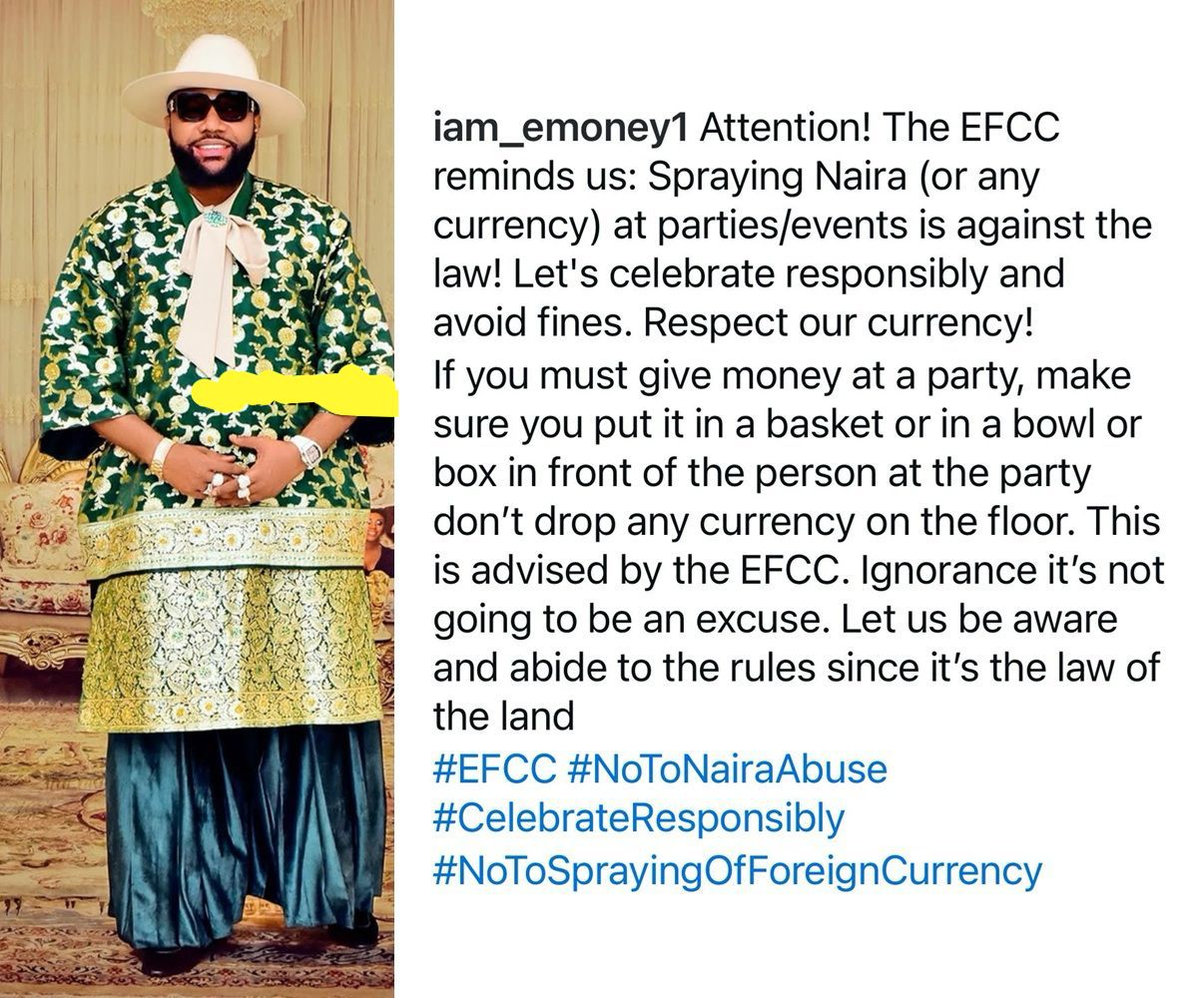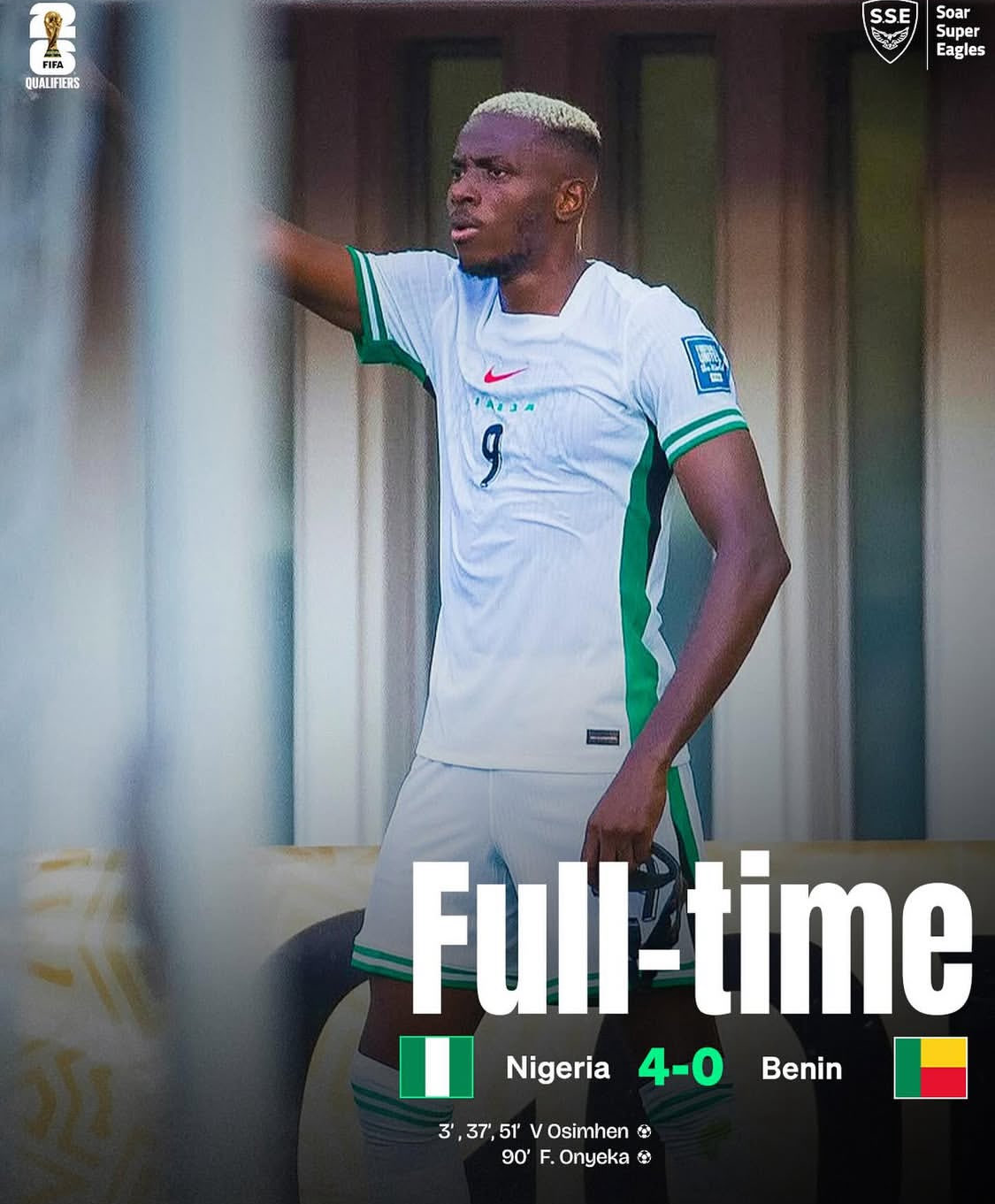
“No More Naira on the Floor”: E-Money Speaks Out on Spraying Money at Parties After EFCC Release

In a country where lavish parties, exuberant celebrations, and public displays of wealth are part of the cultural fabric, Nigerian music executive and billionaire businessman Emeka Okonkwo, popularly known as E-Money, has sparked a critical conversation following his recent run-in with the Economic and Financial Crimes Commission (EFCC). Days after being released from EFCC custody, the flamboyant figure took to social media not to flaunt luxury or make a dramatic comeback, but to issue a surprisingly serious public service announcement—“Stop spraying money at parties. It’s illegal, and it’s time we respected our currency.”
The message came with a stern warning and a practical alternative: If you must give money at a party, don’t throw it in the air or scatter it across the dance floor. Instead, place it in a basket, a bowl, or a box positioned respectfully in front of the celebrant or honoree. According to E-Money, this isn't just a suggestion but a reinforcement of Nigerian law. And as he emphasized, “Ignorance is not going to be an excuse.”
His post, which included official reminders from the EFCC, quickly went viral, with fans, critics, and fellow celebrities weighing in. While some were surprised to hear such words from a man who’s built a public image around opulence and generosity, others saw it as a moment of growth—and perhaps a lesson learned the hard way. Whether a calculated PR move or a genuine shift in perspective, E-Money’s message could not have come at a more significant time.
The EFCC has long warned Nigerians about the legal implications of abusing the Naira, especially during social events. Section 21(1) of the Central Bank of Nigeria (CBN) Act prohibits any action that defaces, mutilates, sprays, or steps on the national currency. Yet, for decades, “money spraying” has been a staple of Nigerian parties—weddings, birthdays, naming ceremonies, and even funerals. Guests often toss cash into the air as a sign of celebration, generosity, and honor. It's deeply cultural. But it is, as the EFCC stresses, also illegal.
E-Money’s statement, coming so soon after his brush with the anti-graft agency, added a layer of urgency and seriousness to the issue. “Respect our currency,” he wrote. “Let’s celebrate responsibly and avoid fines.” For many, it was a wake-up call. If someone as influential and seemingly untouchable as E-Money could be reminded by law enforcement about Naira abuse, then no one is above the law.
His use of the hashtag #NoToNairaAbuse alongside #CelebrateResponsibly reflects a wider attempt to promote civic responsibility and cultural reform. In the same breath, he also highlighted the importance of awareness, noting that people must know the law to avoid breaking it. “Let us be aware and abide to the rules since it’s the law of the land,” he added.
The irony was not lost on the public. E-Money has been a frequent subject of social media buzz for his extravagant spending habits and larger-than-life parties where bundles of cash flowed freely. Videos of him and his associates raining money on artists and guests have made headlines over the years. That he is now leading a campaign to curb such practices is a plot twist worthy of Nollywood. But rather than mock the shift, many applauded it.
“Change is good,” one Instagram user commented. “Even the rich are learning to respect the law. We need more of this energy.” Others, however, remained skeptical, questioning whether the sudden advocacy was a sincere call for change or a move to stay in the good graces of law enforcement after his ordeal.
Regardless of motive, the effect is already being felt. Social media platforms are buzzing with debates, while event planners, MCs, and DJs are starting to rethink how they handle cash at events. A few venues are even reportedly introducing designated “money boxes” or “gift stations” to comply with the new wave of awareness. The ripple effect is clear: Nigeria might just be witnessing the beginning of a cultural shift, and E-Money has found himself at the center of it.
The EFCC, for its part, has expressed satisfaction with the rising awareness. The agency has struggled for years to curb the abuse of the national currency, often resorting to arrests and fines. The endorsement of its message by a public figure as influential as E-Money could go a long way in changing public behavior. Enforcement becomes easier when there is advocacy from within the cultural space, not just from legal institutions.
What’s more, this is not just about the Naira. E-Money’s post also referenced the spraying of foreign currencies—a growing trend among Nigeria’s elite. Dollars, pounds, and euros are increasingly used to show affluence at high-end events. But the EFCC warns that such practices are also prohibited, as they encourage black market transactions, fuel money laundering, and undermine the formal economy.
While it’s still early days, the tone of E-Money’s message suggests he’s embracing a new image—one of maturity, lawfulness, and perhaps a more understated kind of influence. It’s a pivot that some fans welcome. After all, in a country facing economic instability, rising inflation, and a depreciating currency, the optics of people trampling money on dance floors can no longer be ignored.
As the news cycle continues to turn, all eyes will be on how other celebrities respond. Will more public figures echo E-Money’s call? Will socialites and partygoers abandon the habit of spraying cash for more respectful alternatives? Or will the deeply ingrained cultural practice prove too stubborn to change?
Only time will tell. But for now, one thing is clear: dropping currency on the floor is no longer just a harmless party ritual. It’s a legal offense, a societal issue, and a conversation that’s just beginning. And thanks to E-Money’s unexpected but powerful message, that conversation is reaching the right ears.
So next time you’re at a party, think twice before you throw that Naira in the air. It’s not just your money—it’s the dignity of a nation’s currency. And if E-Money can make that change, so can you.


